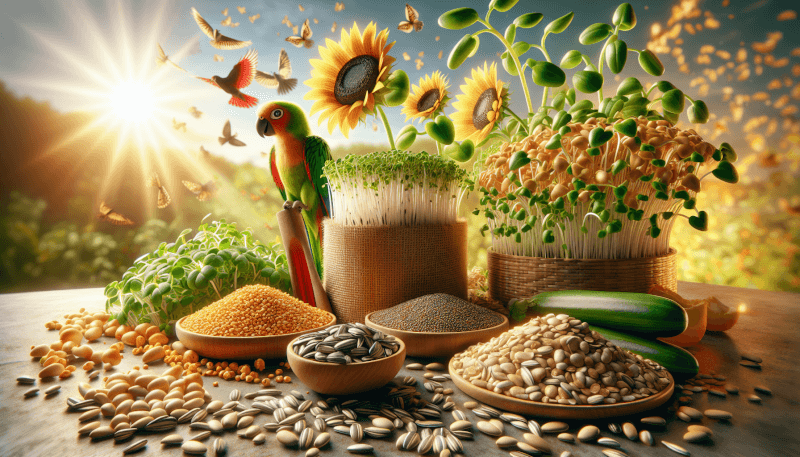👋 Click the mic button to talk to Alfred, the Todd's Seeds Gardening/Sprouting Expert – Feel free to ask him anything!
Ask Virtual Todd Anything - Click the Mic
Have you ever wondered about the perfect way to provide a healthy and nutritious diet for your beloved parrot? Look no further! In this article, we will explore the wonders of sprouting seeds for parrots. Sprouting seeds not only enhance the nutritional value of their diet but also provide a variety of textures and flavors that can keep your feathered friend eagerly pecking away. So, grab a bag of seeds, your parrot’s enthusiasm, and let’s embark on the journey of sprouting seeds for parrots together!
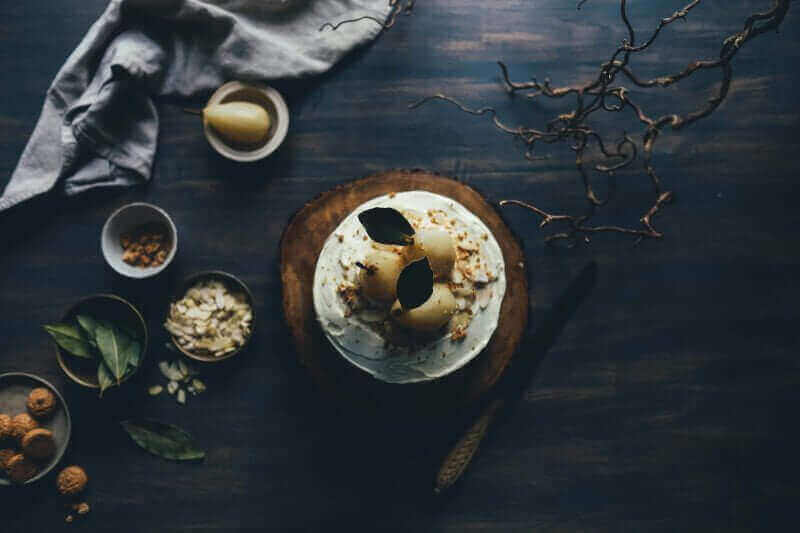
Benefits of Sprouting Seeds for Parrots
Nutritional Value
Sprouting seeds for parrots is a fantastic way to enhance their diet with a wide array of essential nutrients. When seeds are allowed to sprout, they undergo a transformation that unlocks their nutritional potential. Sprouted seeds are rich in vitamins, minerals, and enzymes that are beneficial for your feathered friend’s overall health. They provide a concentrated source of protein, fiber, and healthy fats, which are essential for maintaining optimal energy levels and promoting healthy bodily functions.
Digestive Health
One of the key benefits of sprouting seeds for parrots is improved digestive health. The sprouting process breaks down complex carbohydrates, making them easier for parrots to digest. The increased enzyme activity in sprouted seeds aids in the breakdown of food, allowing better absorption of nutrients. This can be particularly beneficial for parrots with sensitive stomachs or digestive issues. The added fiber content from sprouted seeds also helps regulate digestion and prevents common problems such as constipation.
Enhanced Immune System
By incorporating sprouted seeds into your parrot’s diet, you can significantly boost their immune system. Sprouted seeds are packed with antioxidants that help strengthen the immune system and fend off diseases. The high vitamin and mineral content found in sprouted seeds offers essential support for a robust immune response. Regularly feeding your parrot sprouted seeds can help reduce the risk of illnesses and enhance their overall well-being.
Weight Management
Maintaining a healthy weight is vital for the well-being of your parrot. Sprouted seeds can be a valuable tool in weight management for your feathered friend. Unlike dry seeds, which are high in fat and calories, sprouts provide a lighter and more nutritious option. The increased water content and reduced fat contribute to a lower-calorie profile, making sprouted seeds an excellent choice for parrots who need to watch their weight. Adding sprouted seeds to their diet can help prevent obesity and the associated health issues.
Types of Seeds for Sprouting
Sunflower Seeds
Sunflower seeds are a popular choice for sprouting due to their high nutritional content. They are an excellent source of vitamin E, which acts as a powerful antioxidant. Sprouted sunflower seeds are also rich in essential minerals such as magnesium, calcium, and iron. These nutrients contribute to vibrant feathers, strong bones, and a healthy cardiovascular system for your parrot.
Flaxseeds
Flaxseeds are tiny powerhouses of nutrition. They are a rich source of omega-3 fatty acids, which are essential for your parrot’s immune system, brain health, and feather condition. Sprouted flaxseeds provide a concentrated dose of these beneficial fats, contributing to healthy skin and a glossy coat. Additionally, flaxseeds contain lignans, a type of antioxidant that may have anti-inflammatory and cancer-fighting properties.
Millet Seeds
Millet seeds are a great choice for parrots that enjoy a variety of textures and flavors. Sprouted millet seeds are highly digestible and provide a good source of carbohydrates and B-complex vitamins. The B vitamins found in millet seeds support the parrot’s nervous system and help maintain healthy feathers. These tiny grains also offer a satisfying crunch, making them a popular addition to your parrot’s sprouted seed mix.
Quinoa Seeds
Quinoa seeds are a versatile and gluten-free grain that can be sprouted for your parrot’s nutritional benefit. Sprouted quinoa seeds are low in fat and high in protein, making them an excellent addition to their diet. They contain all nine essential amino acids, making them a complete protein source. Quinoa seeds also provide essential minerals like iron, magnesium, and zinc, which contribute to overall health and well-being.
Chia Seeds
Chia seeds have gained popularity for their nutritional benefits in recent years. When sprouted, these tiny seeds offer a range of health benefits for your parrot. They are an excellent source of dietary fiber, which aids digestion and promotes a healthy gut. Sprouted chia seeds also contain omega-3 fatty acids, which help reduce inflammation and support brain health. Additionally, chia seeds provide essential minerals like calcium, phosphorus, and magnesium.
Preparing Seeds for Sprouting
Soaking the Seeds
Before sprouting seeds for your parrot, it is essential to soak them properly. Soaking helps initiate the germination process and softens the seeds, making them easier to digest. To soak your seeds, simply place them in a container filled with clean water. The water should cover the seeds by at least one inch. Allow them to soak for the specified time mentioned for each type of seed. After soaking, rinse the seeds thoroughly to remove any residue.
Rinsing and Draining
After soaking, rinsing the seeds is a crucial step in the sprouting process. Rinse the seeds gently under cool, running water to remove any impurities or residual soaking water. Proper rinsing ensures that your parrot consumes clean sprouted seeds, free from any potential contaminants. Once rinsed, drain the seeds thoroughly to remove excess water. Ensure that there is proper drainage to prevent the seeds from becoming waterlogged, which can lead to mold or bacterial growth.
Choosing the Sprouting Method
There are various methods you can choose from when sprouting seeds for your parrot. The most common methods include the jar method, tray method, and bag method. Each method has its advantages and can be suitable for different types of seeds. The jar method involves using a wide-mouthed jar with a mesh or cheesecloth covering the opening. The tray method utilizes shallow trays or sprouting containers with proper drainage. The bag method involves placing the soaked seeds in a breathable bag, such as a muslin bag, and hanging it in a well-ventilated area. Choose the method that works best for you and your parrot’s needs.
Methods of Sprouting Seeds
Jar Method
The jar method is a simple and effective way to sprout seeds for your parrot. After soaking and rinsing the seeds, transfer them to a wide-mouthed jar. Cover the opening with a mesh or cheesecloth secured with a rubber band. This allows for proper airflow while preventing the seeds from falling out. Place the jar in a cool, dark place, away from direct sunlight. Rinse and drain the seeds twice a day, making sure to remove any excess water. Within a few days, you will start to see the sprouts emerging.
Tray Method
The tray method involves using shallow trays or sprouting containers with proper drainage. After soaking and rinsing the seeds, spread them evenly in a tray or container. Ensure that there is ample space between each seed to allow for proper airflow. Place the tray in a location with indirect sunlight and good ventilation. Rinse the seeds twice a day, making sure to drain off any excess water. As the sprouts grow, gently separate them from one another to prevent entanglement.
Bag Method
The bag method is an excellent choice for sprouting seeds that require good airflow. After soaking and rinsing the seeds, place them in a breathable bag, such as a muslin bag. Ensure that the seeds are evenly distributed to maximize airflow. Hang the bag in a well-ventilated area, away from direct sunlight. Rinse the seeds twice a day by dipping the bag in clean water and gently swishing it around. Allow excess water to drain off before hanging the bag again. The sprouts will begin to grow within a few days, and you can monitor their progress through the breathable bag.
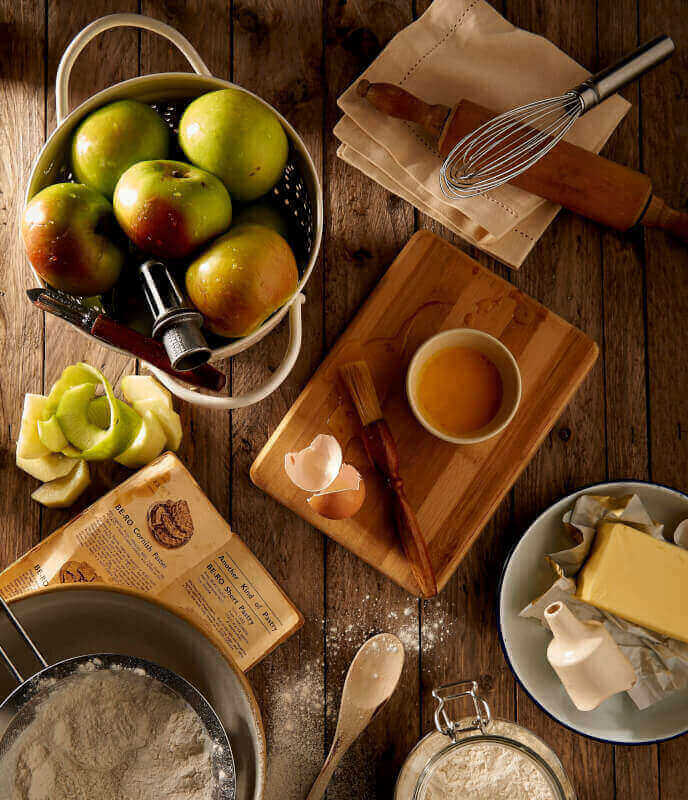
Sprouting Technique and Tips
Timing and Temperature
The timing and temperature play a crucial role in successful sprouting. Each type of seed has different requirements, so it’s essential to follow the specific instructions for each seed. Generally, seeds sprout best at temperatures between 65-75°F (18-24°C). It is important to avoid extreme temperatures, as they can hinder or damage the sprouting process. Maintaining a consistent and suitable temperature will help ensure successful sprouting and minimize the risk of mold or bacterial growth.
Hygiene and Sanitation
Maintaining proper hygiene and sanitation throughout the sprouting process is vital for your parrot’s health. Always use clean water and sanitized equipment when handling the seeds. Ensure that the sprouting containers or jars are thoroughly washed and rinsed before use. Avoid using containers with cracks or signs of wear, as they can harbor bacteria. Regularly clean and sanitize your sprouting equipment to minimize the risk of contamination.
Avoiding Mold and Bacterial Growth
Mold and bacterial growth can pose health risks to your parrot. To prevent this, it’s crucial to provide optimal conditions for sprouting. Proper rinsing and draining will help remove excess water and prevent waterlogged seeds. Additionally, good airflow is essential to keep the sprouts dry and discourage the growth of mold and bacteria. If you notice any signs of mold, discoloration, or a foul smell, discard the sprouts immediately and start fresh.
Feeding Sprouted Seeds to Parrots
Slow Introduction
When feeding sprouted seeds for the first time, it’s important to introduce them gradually into your parrot’s diet. Start by offering small amounts of sprouts mixed with their regular food. Observe your parrot’s response and any potential digestive changes. If your parrot tolerates the sprouted seeds well, you can gradually increase the portion size over time. A slow introduction helps your parrot’s digestive system adjust to the new food and minimizes the risk of digestive upset.
Mixing with Other Foods
To provide a well-rounded diet, it’s essential to mix sprouted seeds with other foods recommended for parrots. While sprouted seeds are a nutritious addition, they should not replace a balanced diet. Include a variety of fresh fruits, vegetables, and high-quality pellets in your parrot’s daily meals. The combination of sprouted seeds and other foods ensures a diverse nutrient intake and promotes overall health and vitality.
Storage and Shelf Life
Once sprouted, it’s important to store the seeds correctly to maintain their freshness and nutritional value. Place the sprouts in an airtight container and refrigerate them. Properly stored sprouted seeds can usually last for up to 3-5 days. However, it’s important to monitor the sprouts closely for any signs of spoilage or unpleasant odors. If you notice any changes, it’s best to discard them to avoid potential health risks.
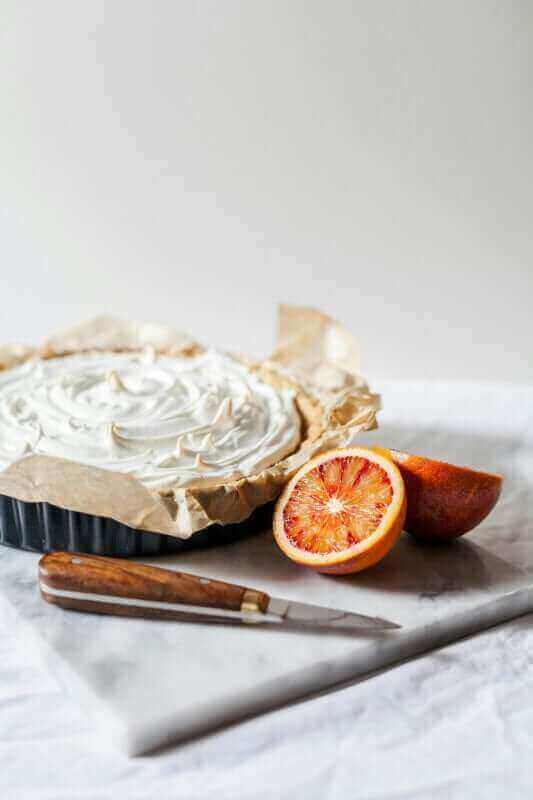
Potential Risks and Precautions
Allergic Reactions
While sprouted seeds offer numerous benefits, some parrots may have allergies or sensitivities to specific types of sprouts. It’s essential to monitor your parrot closely after introducing sprouted seeds into their diet. Look for any signs of allergic reactions, such as itching, swelling, or digestive upset. If any adverse reactions are observed, consult your avian veterinarian for guidance on suitable alternatives.
Avoiding Toxic Seeds
Not all seeds are safe for sprouting, and some may even be toxic to parrots. Ensure that the seeds you select for sprouting are safe and specifically recommended for parrot consumption. Seeds such as avocado, apple seeds, and cherry pits are examples of toxic seeds that should never be used. Carefully research and verify the safety of the seeds before introducing them into your parrot’s diet.
Contamination and Food Safety
Maintaining strict food safety practices is vital when sprouting seeds for your parrot. Avoid using seeds intended for planting, as they may be treated with pesticides or other chemicals. Purchase high-quality, organic seeds from trusted sources to reduce the risk of contamination. Follow proper rinsing and draining techniques to remove any potential contaminants. Always handle the sprouts with clean hands and sanitize any utensils used in the sprouting process.
Common Mistakes in Sprouting Seeds
Over-soaking the Seeds
Over-soaking seeds can lead to waterlogged conditions that promote mold and bacterial growth. It’s important to follow the recommended soaking times for each type of seed. Avoid leaving the seeds in water for extended periods, as this can negatively affect the sprouting process. Proper soaking ensures optimal hydration without over-saturation.
Under-rinsing the Sprouts
Thoroughly rinsing the sprouts is essential to remove any potential impurities or residual water. Under-rinsing can result in the accumulation of bacteria or mold, which can pose health risks. Take the time to rinse the sprouts properly under running water, ensuring that no residue remains. This step contributes to the overall cleanliness and safety of the sprouted seeds.
Sprouting in Unsanitary Conditions
Maintaining proper hygiene throughout the sprouting process is crucial for your parrot’s well-being. Sprouting seeds in unsanitary conditions can introduce harmful bacteria or mold. Always ensure that your sprouting equipment, including jars, trays, or bags, is clean and sanitized before use. Regularly clean and disinfect the sprouting area to minimize the risk of contamination.
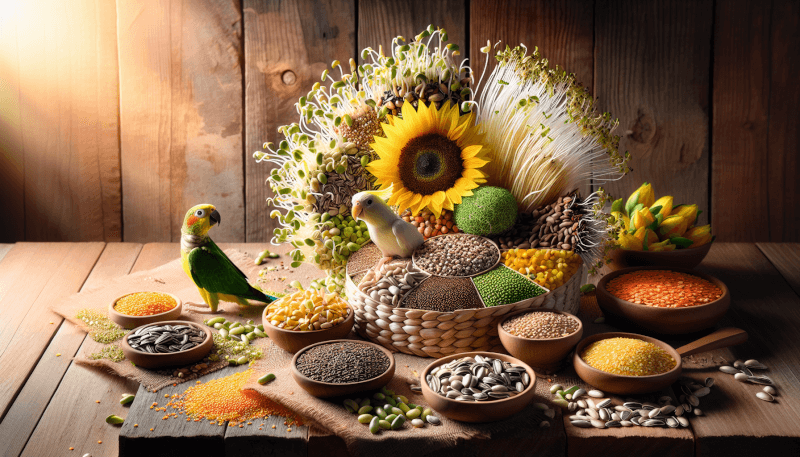
Alternative Methods of Enhancing Parrot’s Diet
Fresh Fruits and Vegetables
In addition to sprouted seeds, fresh fruits and vegetables play a vital role in enhancing your parrot’s diet. These provide essential vitamins, minerals, and fiber that support overall health and well-being. Incorporate a variety of fruits and vegetables into their diet to promote diversity and ensure a balanced nutrient intake. However, be cautious of specific fruits that may be harmful to parrots, such as grapes and avocados.
Pelleted Diets
Pelleted diets offer a convenient and nutritionally balanced option for parrots. They are specially formulated to provide a complete range of essential nutrients, minimizing the need for additional supplementation. Pellets can be incorporated into your parrot’s daily diet alongside fresh fruits, vegetables, and sprouted seeds. It’s important to select high-quality pellets that are appropriate for your parrot’s specific breed and size.
Supplements
In some cases, supplements may be necessary to complement your parrot’s diet. However, it’s essential to consult with your avian veterinarian before introducing any supplements. They can assess your parrot’s specific needs and recommend suitable supplements if required. Remember, a balanced and varied diet should be the primary focus, and supplements should only be used as directed by a professional.
FAQs about Sprouting Seeds for Parrots
Can all parrots eat sprouted seeds?
While sprouted seeds are generally beneficial for parrots, individual parrots may have different dietary requirements or sensitivities. It’s always recommended to consult with an avian veterinarian before introducing sprouted seeds into your parrot’s diet. They can assess your parrot’s specific needs and guide you on suitable options.
How long do sprouted seeds last?
Properly stored sprouted seeds can last for up to 3-5 days in the refrigerator. However, it’s crucial to monitor the sprouts closely for any signs of spoilage or unpleasant odors. If any changes are observed, it’s best to discard them immediately to prevent potential health risks.
Can I sprout seeds from my birdseed mix?
The suitability of sprouting seeds from a birdseed mix depends on the specific mix and its ingredients. Some birdseed mixes may contain seeds that are safe for sprouting, while others may contain seeds that are not suitable for consumption. It’s important to carefully read the label and identify the types of seeds present. When in doubt, it’s best to purchase seeds specifically intended for sprouting to ensure your parrot’s safety and well-being.
